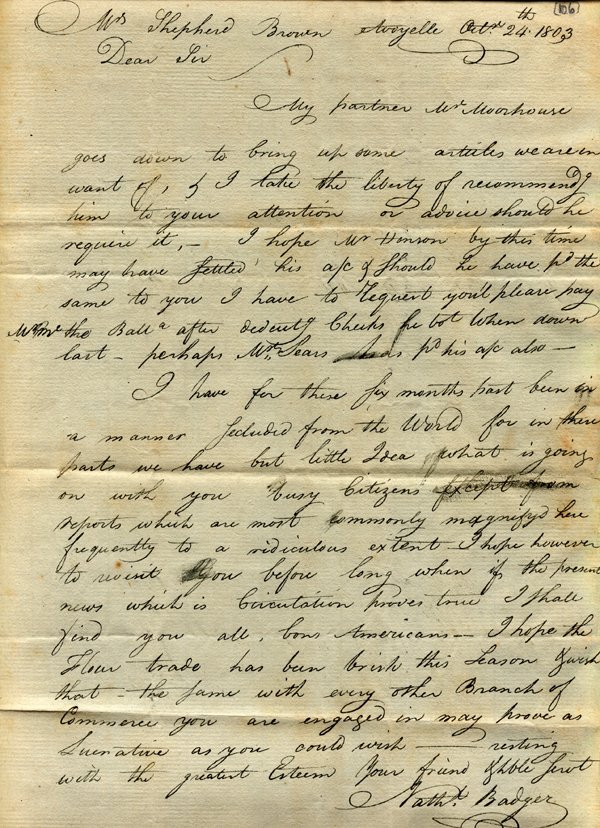
| ||||
| Return to Table of Contents Go to Page [1] [2] [3] [4] [5] [6] [7] [8] [9] [10] [11] [12] [13] [14] [15] [16] [17] [18] [19] [20] [21] [22] [23] [24] [25] [26] [27] [28] [29] [30] [31] [32] [33] [34] [35] [36] [37] [38] [39] [40] [41] [42] [43] [44] [45] [46] [47] [48] [49] [50] [51] | ||||
PAGE 19
| Nathaniel Badger wrote to Shepherd Brown
three months later when news of the Purchase was more wide-spread, even among those secluded in the
countryside of Avoyelles. He salutes the "busy Citizens" of New Orleans as "bons Americans."
|
Badger's correspondent, Shepherd Brown, was a native of Virginia, who came to New Orleans in 1800 and
established himself in business with Baltimore merchant William Taylor and, later, with the firm of McDonogh
and Payne. By 1802, he had formed his own company, Shepherd Brown and Co., while continuing his
association with McDonogh. Brown's company pursued the newly developing western trade, purchasing
agricultural products from up river for eventual transshipment to eastern markets. In 1805 Brown retired to
his farm in St. Helena, where he was appointed an alcade by the Spanish rulers of West Florida and,
because of his opposition to the revolution there, was briefly imprisoned. After the Florida parishes were
annexed by the United States, he was appointed a parish judge. He died in Baltimore in 1818. The records
he left behind, along with the records of McDonogh and Payne, both preserved in the Louisiana Division,
provide a wealth of information on trade practices in New Orleans during the late colonial and early territorial
periods. 
| |||